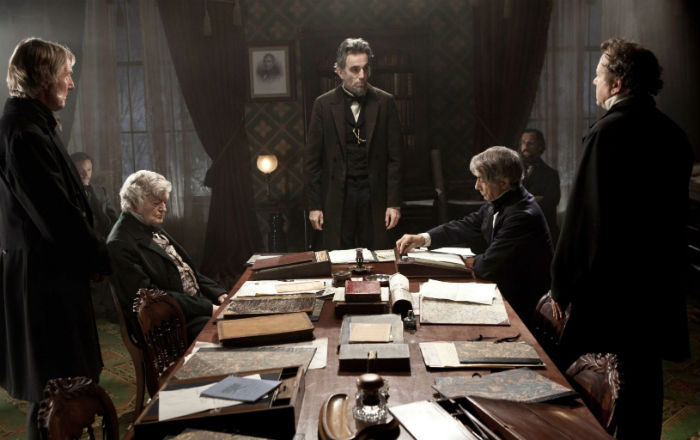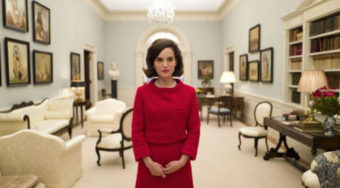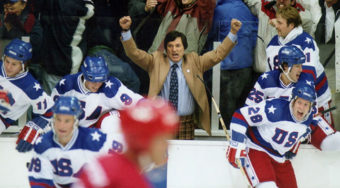Blog
10 Great Political Speeches in Movies

In honor of both the Democratic and the Republican political conventions, doctor we take a look at 10 great political movie speeches.
In preparation for Donald Trump’s acceptance speech tonight at the Republican National Convention and the Democrat’s convention next week, advice we decided to take a look at 10 great political speeches in movies. These well-known onscreen speeches address subjects as disparate as network news, ending slavery and the prevention of an alien invasion.
What they all have in common though is passion. Each of the speakers– whether they be fictional characters or characters based on real political figures–is passionate about their beliefs and values.
With that in mind, here’s a list of ten great political movie speeches. You may not agree with the sentiments laid out in all of them but each of these memorable speeches will be hard to forget.
Mr. Smith Goes to Washington (1939): Frank Capra’s classic film about an appointed first-term Senator is a must-see for anyone who wants to become involved in the political arena. The feature stars Jimmy Stewart as an idealistic man who enters politics believing in the goodness of people.
He finds corruption and immorality in Washington D.C. The idealistic politician fights to maintain his integrity despite the critics who want to see him fail. To prove his innocence against charges of corruption, Smith stages an unforgettable filibuster leading to one of the most compelling political speeches ever presented on the big screen.
The Great Dictator (1940): The United States didn’t enter World War 2 until 1941 but this 1940 American war comedy offered a glimpse of what was at stake. Chaplin stars here as both a brutal dictator and as an innocent Jewish barber (who closely resembles the dictator), who is prosecuted for his religious beliefs.
In the end, the barber gets mistaken for the dictator and gets the opportunity to speak up to the crowd. “I don’t want to rule or conquer anyone,” he says, “I should like to help everyone if possible.” The film, which had shown the worst of humanity in the dictator’s actions, ends on a high note as the barber uses his opportunity at the microphone to bring people together rather than tear them apart.
Network (1976): In this 1970 drama, a television anchor becomes the voice of populism on the airwaves. Peter Finch stars as the troubled Howard Beale, an angry man who captures the rage of the people in his on-air tirades.
“I’m as mad as hell and I’m not going to take this anymore,” he says in his most famous outburst. The outbursts become so popular that the cynical network executives decide to use that frustration to earn more ratings. Check out his most famous rant below.
The American President (1995): In this 1995 drama, a widowed president begins a relationship with a lobbyist, much to the consternation of his political adversary. The president (played here by Michael Douglas) capitulates his core values to pass a crime bill he needs for re-election but ultimately decides to stand up for his beliefs.
In his final speech of the film, the president stands in front of the press and defends not only his girlfriend but the political values he holds dear. After playing it safe for too long, the president uses his opportunity at the podium to fight for two controversial pieces of legislation he wants to see passed.
Independence Day (1996): Just when it looks like the human race has lost the fight against alien invaders, the president (Bill Pullman) stands up to give a last minute address in this 1996 blockbuster. The president rallies the troops in front of him as well as the world at large.
“Should we win the day,” he says, “the 4th of July will no longer be known as an American holiday but as the day the world declared in one voice, ‘we will not go quietly into the night.'” Check out the full speech below.
Air Force One (1997): Harris Ford stars in this 1997 blockbuster about a president who is forced to take on a group of terrorists after Air Force One is hijacked. Before that attack though, the president addresses the world community in a speech where he says that he will no longer negotiate with terrorists.
“Atrocity and terror are not political weapons and to those who would use them, your day is over” he says. His promise is tested when his family is held hostage and the president is forced to make some extremely difficult decisions.
Remember the Titans (2000): Coaching a newly-integrated football team is no easy task but that’s the task Herman Boone was faced with in the early 1970s. This 2000 feature dramatically shows how this beloved coach brought his team together.
“If we don’t come together right now on this hallowed ground, we too will be destroyed,” the coach states after bringing the team to the Gettysburg battlefield. The speech helped unify the team and helped these players realize the political and personal consequences of fighting each other.
The King’s Speech (2010): Based on a true story, this best picture Oscar winner focused on the importance of one single speech. King George VI (played here by Colin Firth) was attempting to bring his country together at the beginning of World War II but a stammer prevented him from sounding as strong as he wanted to be.
With the help of a speech therapist, the king eventually overcomes the stammer to give the political address of his life. “If one and all we keep resolutely faithful to it, then with God’s help, we shall prevail,” he says, uniting the country behind his leadership before the difficult days ahead.
Lincoln (2012): In Steven Spielberg’s historical drama Lincoln, the 16th President (played by a terrific Daniel Day-Lewis) wants to free the slaves with a constitutional amendment at the end of the Civil War. His political adversaries and even his allies question his goals but the president keeps pressing forward.
When confronted with cynics on all sides, the president presses his case for the immediate passage of the 13th Amendment. “Blood’s been spilled to afford us this moment. Now. Now. Now,”he shouts letting his allies know he does not want the moment to pass them by.
Selma (2014): David Oyelowo stars as the Reverend Martin Luther King Jr. in this Oscar-nominated film about the famous civil rights march in Selma. Although politicians and the police rejected King’s rhetoric, he urged his allies to fight on against injustice even if it meant they would face threats and persecution.
“We will not wait any longer. Give us the vote,” he says. The leader knows that they will be met with protests and possibly violence but he also knows that in order to succeed, they can not back down from their core beliefs.
Related Content
Comments
Recent Posts
Categories
- 10 Best Things
- 10 Characters
- 10 Differences
- 10 Movies
- 10 Reasons
- 10 Ways
- 5 Characters
- 5 Directors
- 5 Films
- 5 Reasons
- 5 Reasons We Love
- 5 Roles
- 9 Movies
- Appreciation
- Award Shows
- Best of the Year
- Blu-Ray/DVD Reviews
- Book Reviews
- Box Office Report
- Characters: Then and Now
- Emmy Awards
- Episode Recap
- General
- Giveaway
- Golden Globes
- Homeland
- HuffPost Live
- Interview
- Jimmy Kimmel
- Jurassic World
- Monday Spotlight
- Movie News
- Movie Preview
- Movies to Look Forward to
- Must-Read Lists
- Must-Read Reviews
- New on DVD
- New Trailer
- Oscars
- Television Review
- The Colbert Report
- The Credits
- The Late Late Show with James Corden
- The Late Show with Stephen Colbert
- The Movies of
- The Year in Movies
- Tonight Show with Jimmy Fallon
- Trailer Talk
- Trailers
- TV Trailer
- Video
- Worst of the Year












